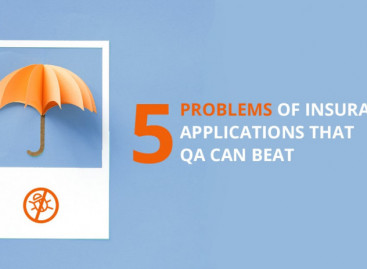- QATestLab Blog >
- Game Testing >
- How Independent Testing Saves the Day for Gaming Apps
How Independent Testing Saves the Day for Gaming Apps

As much as game developers are passionate about what they create, gamers are straightforward about their opinions on games.
Fortunately or not, the number of downloads from AppStore and Google Play typically depends on user ratings. They may praise properly functioning, seamless, and highly interactive games, but their feedback on buggy ones also ends up in front of millions of potential users.
Game testers push gaming apps closer to what customers want them to be by bringing industry-specific expertise and user perspective to the bug hunting process.
In this article, we’ll outline the specifics of game testing, put together a game testing checklist, and walk you through the top five reasons of how independent game testing helps to win the fierce competition in the gaming industry.
Key areas in gaming app testing
Increased diversity in games and demand for stellar gaming experience have made game development a very lucrative and competitive field, where only flawless products manage to retain gamers.
When it comes to quality, several things are commonly accepted as the most important reasons why a mobile game becomes a success:

UI and Functionality
Game UI is one of the toughest parts of game development. With so many different screens, UI layouts and elements, menu structure and functions, as well as screen orientation and resolution, need to be carefully thought through. Evaluating and interpreting “harmony” between the user interface and the artwork is never easy for a game tester.
Testing game functionality, on the other hand, means verifying that all playing modes, character statuses, and features are available. A high-quality game also implies that there are no saving glitches, missing sound effects, or issues with in-game purchasing that would cause headaches and bad reviews.
Performance
In mobile games, a great user experience is indispensable without great performance. For this, graphics performance needs to be up to snuff and consistent across various devices.
Gaming apps require quite a lot of performance testing before they can be released. What type of performance testing is needed depends on the nature of the game, graphics, gameplay, multiplayer functionalities, and much more. The most typical performance testing done for a mobile game are load and stress tests.
Usability and Gaming Experience
Usability is an integral part of game development and is about maximizing the effectiveness, efficiency, and satisfaction of the gamer. Immersion and engagement are fundamental and core parts of the enjoyment of gaming apps, and are both dependent on usability.
Usability testing measures the intuitiveness of the game design and the emotional response it evokes in potential customers. It provides rare insights into the end-user journey, helps in validating the game quality, and revealing areas where the gaming experience does not match with the design intent.
Security
Preserving the game integrity, protecting the gamer assets, and securing in-game transactions are crucial for game development. Adequate security measures help to combat mods, piracy, hackers, and cheaters. It is especially important because gaming apps use a variety of third-party tools such as ads or payment gateways that are often an easy point of access for intruders.
Device compatibility
When it comes to compatibility with various devices, the three major concerns that affect the success of a game include:
- Performance – as the behavior of a game may differ from device to device;
- Visuals – as devices vary in screen sizes; the colors may look different on different screens;
- The impact of the game on device performance can affect the gaming experience.
Gaming apps that do not work with most devices and OS pose a reputational risk to the studio. Getting the maximum compatibility requires the use of physical, real devices, for testing.
Multiplayer features
Multiplayer features empower gaming apps to bring players together over the Internet and promote a sustained community of dedicated fans playing together. However, adding online multiplayer to a game is also massively time-consuming, costly, and not exactly the greatest fun a developer will ever have. In the same way, testing multiplayer abilities is naturally more challenging.
Social Integrations
In many gaming apps, it is essential to be able to share results across the ecosystem. This should be thoroughly tested using real devices, with different OS versions and different device configurations, to understand the functionality and ease-of-use.
Pitfalls of game testing
Game testing can be quite challenging.
First of all, there is a sizable lack of a structured approach when it comes to assessing the fun factor and other subjective aspects of the game. That’s why the mastery of ad-hoc requires a high level of expertise – game testers should be able to challenge the system by performing countless edge-case scenarios and make sure the game would sustain the most hectic playing styles.
Secondly, sufficient compatibility testing requires a test lab heavily packed with real devices. Setting up hardware and software required for testing, as well as maintaining test environments and tools requires significant investment and therefore greatly increases the total cost of ownership.
Finally, game testing requires technical expertise rather than playing games all day long. The team of game QA engineers should be able to handle issues related to network connectivity, latency, & frame rate, RAM usage optimization, complexities of the GUI-level testing, and much more.
Lately, test automation has also come into play.
The gaming industry is not mature enough in test automation practices, yet their adoption is on the rise. Automation brings more game reliability, resource optimization (i.e. greater tester and machine efficiency), more tests in less time, the ability to reuse test scripts, and stress & load testing with no need for large pools of testers.
How independent testing helps you deliver flawless games
It’s impossible to overestimate the importance of a properly functioning, seamless, and highly interactive game. With such a demanding customer base, there is no room for error to make by the game developing studios.
Independent testing can become a safety cushion, able to significantly reduce the time-to-market and help in preparing the game for success in all languages and markets.
Let’s outline five key reasons why independent testing can be beneficial for game development and cost optimization:
- In-depth experience of game QA engineers in the end-to-end gaming ecosystem across platforms as well as in test automation;
- Testing from a gamer perspective to assess the “fun factor” and make sure the gameplay is balanced and immersive;
- No need to maintain test environments and tools – a provider of independent testing services will bring a large lab of real devices for comprehensive compatibility testing;
- An independent service provider can either undertake all required testing activities or strengthen the in-house team with the specific skill set, devices, and suggestions for QA optimization;
- Freedom from managing resources. QA Project Managers take over coordination of testing at all stages, while the customer focuses on product development and business goals.
The QATestLab team has successfully helped studios enhance the gaming experience for their customers by ensuring the highest quality for each aspect of their products.
We create detailed testing strategies, incorporating industry standards into our strategy and processes.
Contact our game testing experts to discuss your amazing project and launch the testing process right away.
Learn more from QATestLab
Related Posts:
- No Related Posts
About Article Author
view more articles








No Comments Yet!
You can be the one to start a conversation.